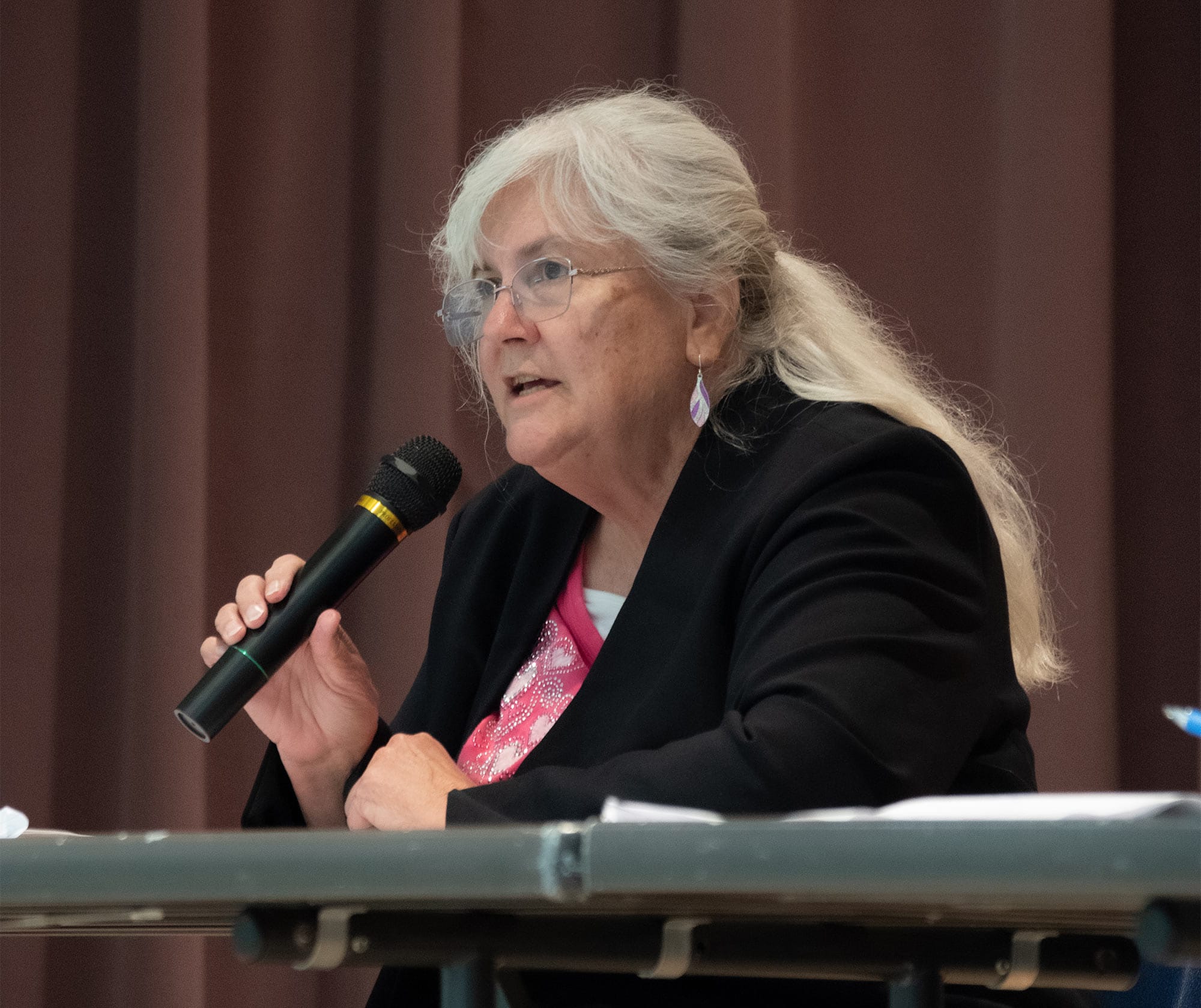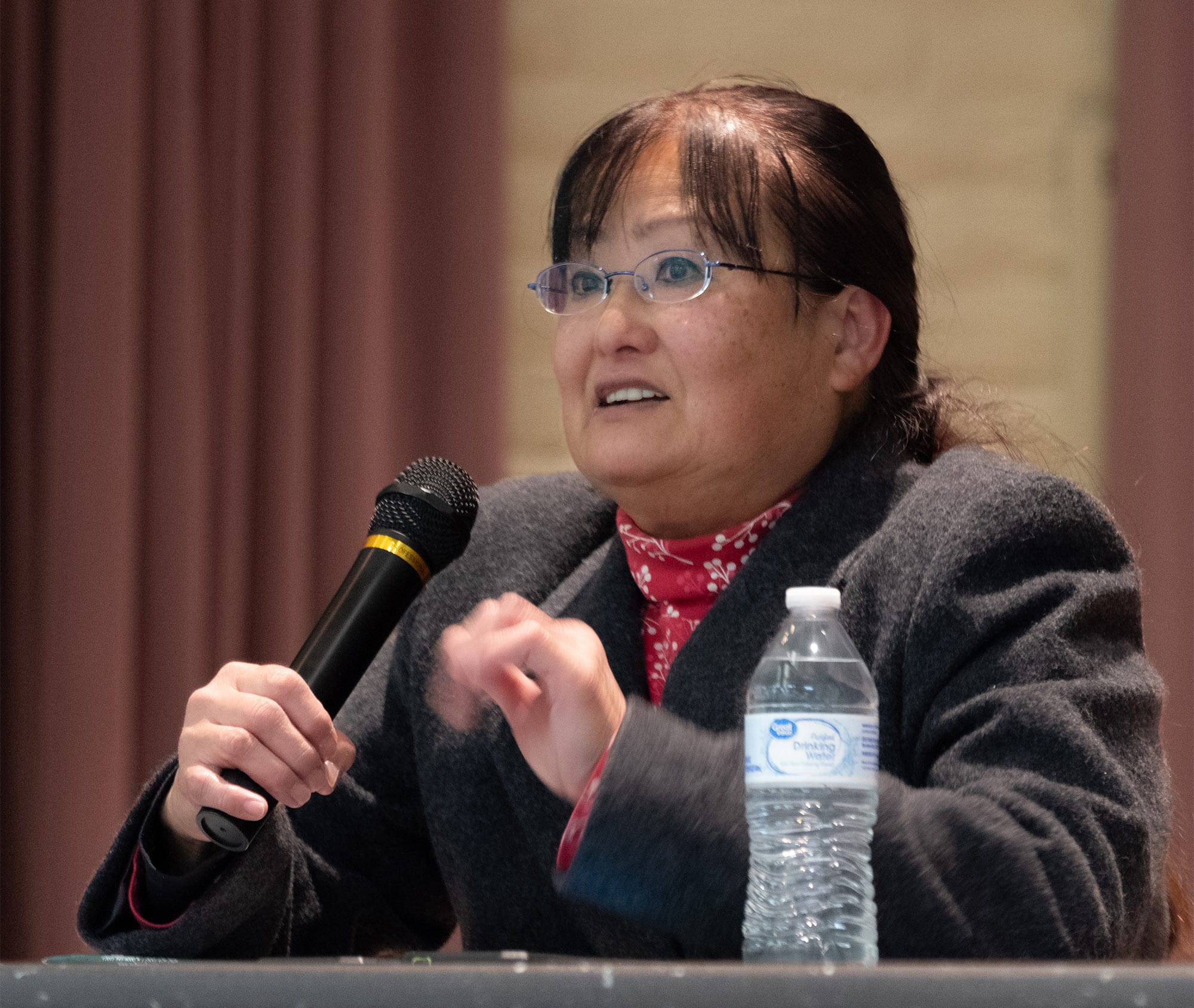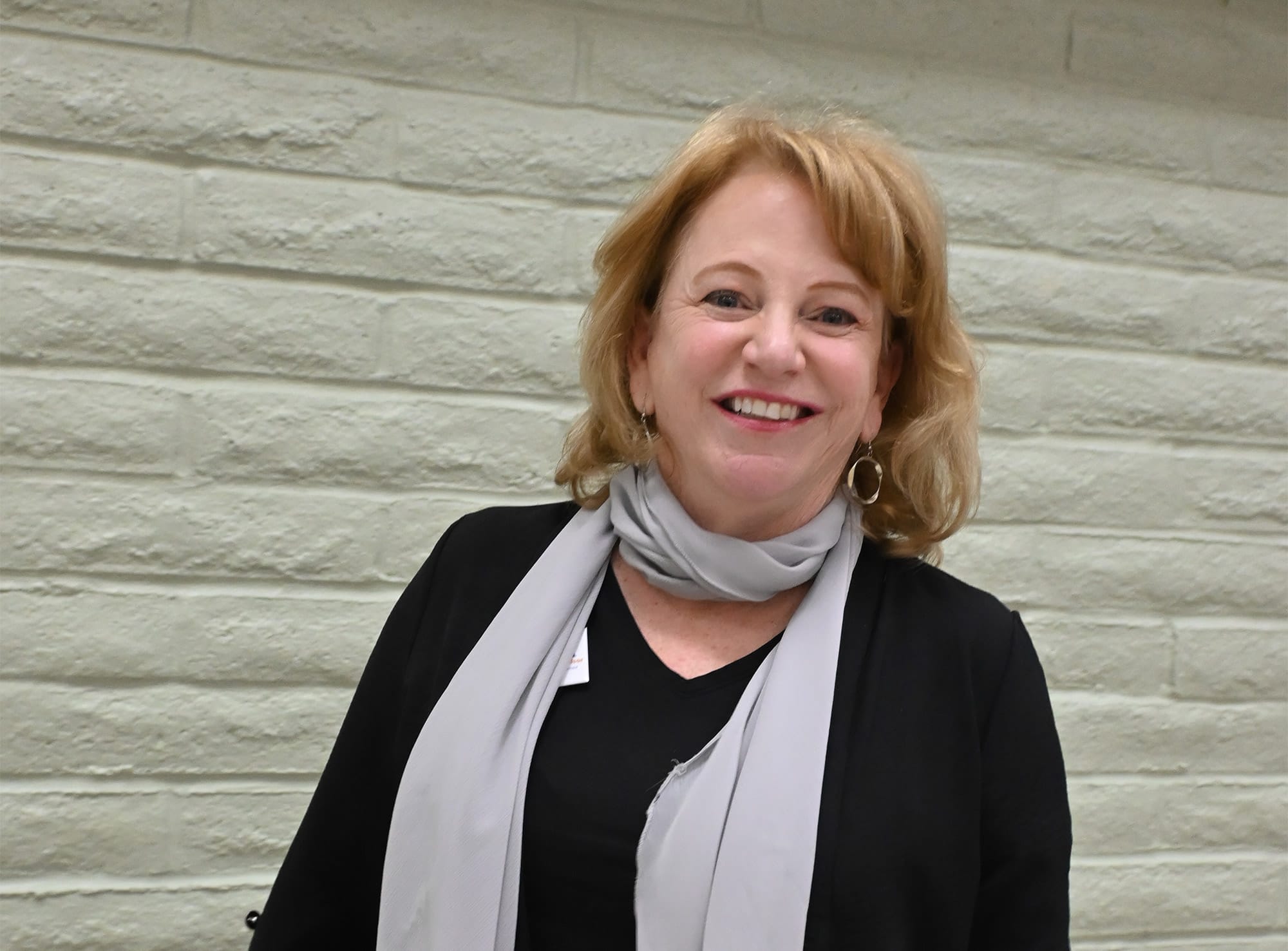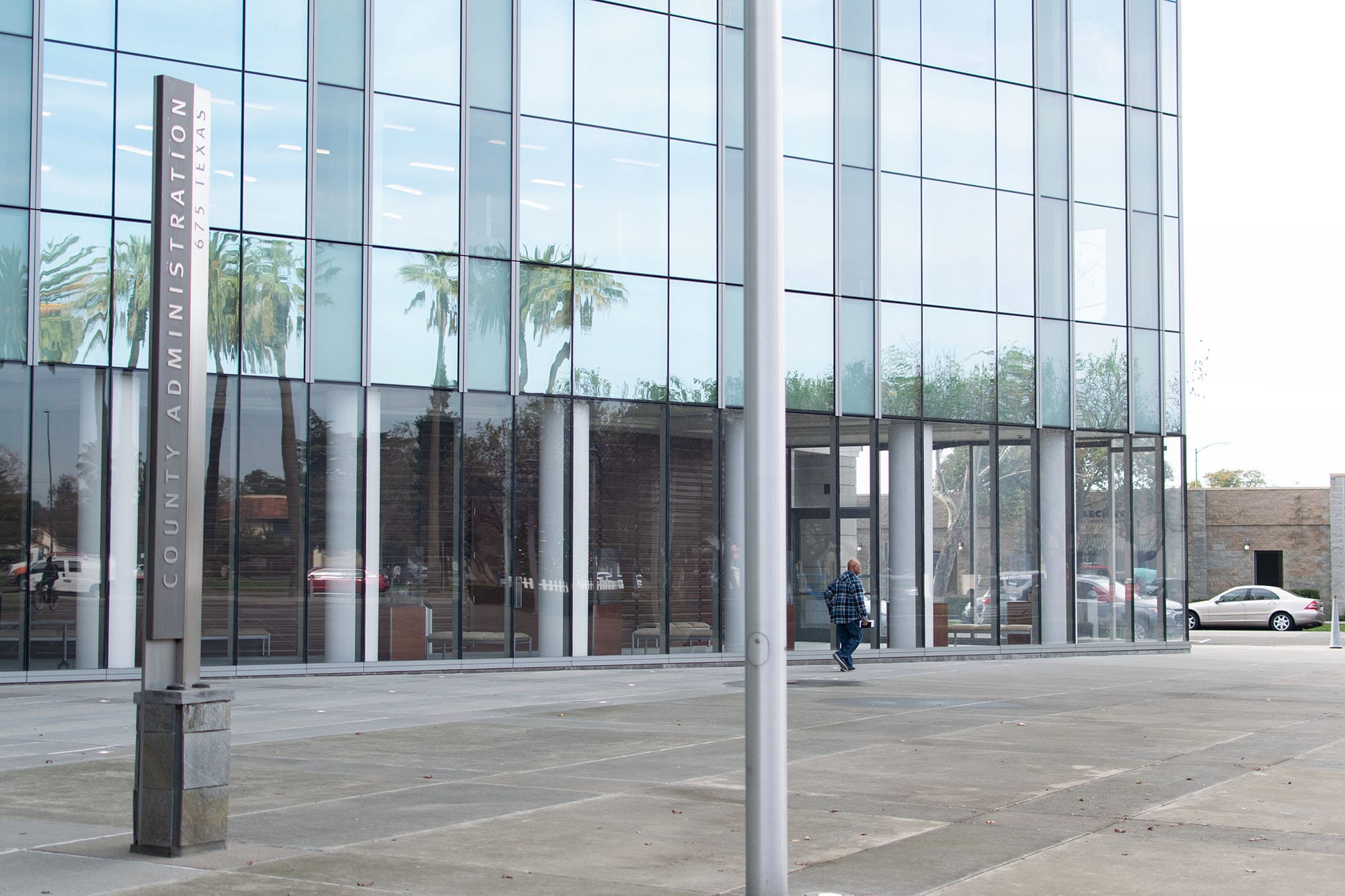FAIRFIELD – Solano County Board of Supervisors incumbent Monica Brown faces two challengers in the March 5 primary election in a race that could go to a runoff in November.
Challenging Brown, a retired middle-school teacher, is leadership consultant Rochelle Sherlock, who lost to Brown previously in the 2020 primary election. Brown won 51% of the vote, Sherlock took 25% and K. Patrice Williams took 24%. This year, Fairfield real estate broker Nora Dizon is also running. Dizon narrowly lost a bid for Fairfield City Council in 2022.
District 2 covers the portion of Vallejo south of Georgia Street and Mare Island, the city of Benicia, the Cordelia area and Fairfield south of Interstate 80 and Texas Street. In elections for Solano County supervisors, a candidate can win the office in the primary election by taking more than 50% of the vote. Otherwise, the top two candidates compete in November’s general election.
 The Vallejo SunScott Morris
The Vallejo SunScott Morris
Brown won her first term in 2016, when she won a general election runoff against Mike Ioakimedes.
In this year’s election, Sherlock is running a strong campaign and in campaign forums both Sherlock and Dizon have made points that appear to resonate with those in attendance. However, Brown is asking voters to look at her accomplishments and leadership style over her 7 years in office to decide if her work should continue.
The Vallejo Sun interviewed the three candidates to get a clearer vision of how each of them would move toward their stated priorities if elected.
Monica Brown

Monica Brown is in her second term on the Board of Supervisors. She went into politics after she retired from teaching after 39 years, including 30 at Green Valley Middle School in Cordelia. Brown also served on the Solano County Community College Board of Directors from 2012-2016.
Brown endeavors to be a down-to-earth supervisor who is easily accessible at community events and works to address concerns on an individual and a countywide basis. She said that her voice on the board reflects her perspective as someone who understands what it takes to make personal finances work on a modest salary.
“I go to Safeway, so that I can get my points, I had enough to get 70 cents off per gallon at Safeway,” Brown said. “I think people can relate to that. And I'm not going to change, I am still going to wear my jeans.”
Income has come up as an occasional theme throughout her tenure. During her campaign for her first term, Brown pledged not to accept a salary as a supervisor. In her first year in office she ended up accepting the salary to cover her tax liability and campaign costs, but said that she donated over $60,000 for school gardens, field trips, music programs, the food bank, backpack giveaways and school lunch debt relief.
Brown and Supervisor Wanda Williams entered the two opposing votes to raise supervisor pay for 2024 from $123,000 to $143,000. The Daily Republic reported that some county employees were opposed to the raise, pointing to the county’s reluctance to issue raises for lower paid employees.
Brown was also on the losing end of a 4-1 vote that rejected a proposal to create an oversight body for the Sheriff’s department. She said that she felt the oversight was necessary after revelations that deputies were involved in a far right group known as the Three Percenters but the rest of the board did not agree that the oversight was necessary.
Brown said that she wants to continue the work that she has been doing in her two terms as supervisor. She said that she is proud of her vote to adopt Laura’s Law, which allows a judge to order involuntary mental health treatment in cases that involve violent behavior or threats of violence.
Brown serves on the Mental Health Advisory Board that guided efforts to build a $14.7 million mental health treatment and board and care facility in Fairfield. The 32-bed residential treatment center opened in early 2023.
Another project that Brown said she was proud to work on is a county ordinance that created a permitting process for in-home food preparation businesses. Brown said that the program was, in part, intended to provide a flexible economic option for the spouses of those working at Travis Air Force base because they may only be located in the area temporarily.
Brown has often cited her work with the Napa/Solano Area Agency on Aging, a nonprofit that was near collapse in the beginning of her first term. Brown worked with Napa and Solano County officials to reform the agency and she said that recent funding increases tied to the population of seniors in the county have revitalized the organization.
Brown said that the agency provides $1.5 million in funding for Meals on Wheels and is working to combat isolation and loneliness among seniors by providing laptops along with training from college students on how to use apps like Zoom to stay in touch with friends and family. The Area Agency on Aging also sponsors social events for seniors and provides funding to install grab bars and other safety features in the homes of seniors.
Brown is endorsed by the Progressive Democrats of Benicia. The Solano County Registrar of Voters does not list any contributions to her campaign.
Nora Dizon

Nora Dizon pledges to be a voice for locals that is uninfluenced by an insider network of politicians and development interests. Dizon has been a real estate broker for 32 years and has also worked as an accountant in the construction industry. She unsuccessfully ran for Fairfield City Council in 2022.
“We have what I will call the political network.” Dizon said. “And you've got certain understandings between the people who all hold offices. I would be a definite disrupter. I am not with them. Mostly because, in my opinion, they are using their relationships to hurt our communities.”
Dizon points to her self-funded campaign as evidence that she will not be swayed by development interests. The Solano County Registrar of Voters shows no contributions to Monica Brown so far in 2024. Rochelle Sherlock has received a total of $3,500 from two individual donors and she has donated $10,000 of her own funds to her campaign.
Dizon said that she has seen county officials prioritize development interests over traffic safety concerns expressed by community members. She also said that the current general plan for the city of Fairfield contains provisions that she believes will help developers “annex the city.”
“It's very obvious from the Fairfield general plan update that connected people have a huge influence on what they're choosing to adopt,” Dizon said.
Responsible development is Dizon’s mantra; she said that projects built in the Cordelia area and projects planned in Benicia do not include the infrastructure improvements that are needed to accommodate the impacts of the development. She said that the failure to properly plan for these developments leaves residents smothered in traffic and battling unsafe intersections.
Dizon said that the value of accessory dwelling units are overlooked. “It's not the kind of sexy thing that planning departments want because they want to have some big projects that are easy to deal with, you only deal with one owner,” she said. “Accessory dwelling units are a lot more work, because you have to deal with a different owner for every unit."
But Dizon said that even though ADUs are more labor intensive for planning departments, she believes that they help create opportunities for tenants to save money and purchase their own home. She also believes that ADUs help create more mixed income neighborhoods.
As a member of her neighborhood watch since 1993, Dizon said that she has followed changes in the style of policing at the Fairfield Police Department and she feels that citizen input is important to prevent dangerous default conditions that can arise in policing.
“My experience is that if you don't give the police department feedback, their job is to control the masses and feed us the propaganda that it needs to keep that control,” Dizon said.
In addressing homelessness, Dizon said that the county needs to be more supportive of community and spiritual groups. She feels community and churches have proven to be more cost effective in their efforts. “The politicians just want glory and accolades but the church groups, they want to see results,” said Dizon.
The Solano County Registrar of Voters lists one donation of $20,000 to Dizon’s campaign made by herself.
Rochelle Sherlock

Rochelle Sherlock is a leadership and management consultant with experience in international business development and executive training. She has a master’s degree in organizational development from Sonoma State University and a doctorate in Human and Organizational Learning and Development from George Washington University. She founded a leadership and consulting firm in 2005.
Sherlock’s training and much of her career has been focused on improving the systems and processes of companies and nonprofit organizations. Sherlock says she wants to bring the methodology that she has used in that work to improve the county’s approach to homelessness, crime and economic development.
“One of the things that I would like to see at the county,” Sherlock said, “is that we begin to have a set of metrics to assess whether the county is fulfilling its broad mission and the different missions within each department and move away from this place of ‘Oh, because we're telling you we're doing it, it must be working.’”
Sherlock divides her plan to address homelessness into two sets of strategies. One set relates to those who have become homeless because they are priced out of the housing market. For this group, she said the answer is to encourage the development of affordable housing.
The second set of strategies relates to those who are homeless because they have severe addiction issues or have been involved in the criminal justice system.
Sherlock believes that those exiting incarceration should have adequate services to reduce their risk of becoming homeless or returning to prison. But she also believes that California’s Prop 47 reduced consequences that can serve to interrupt drug addiction. The measure was passed by voters in 2014 and reduced penalities for thefts under $950 in an effort to address prison overcrowding. Sherlock advocates working with state lawmakers to increase penalties again.
“People can keep themselves from having to really confront their addiction if there's not some penalty, or hitting that rock bottom, where they really have to look and go, ‘Well, something's wrong here,’ Unfortunately, that rock bottom often comes when they are arrested.”
State savings from the changes are redirected to school districts, victims services and services such as substance abuse that are intended to reduce recidivism. But Sherlock claims that a decline in court ordered substance treatment has impacted funding that is tied to program participation rates, reducing the capacity of substance abuse treatment providers.
“There's got to be an in-between where addiction cycles are interrupted. And then they're given the kind of supportive services or wraparound services that are needed,” Sherlock said.
Economic development is also a cornerstone of Sherlock’s campaign. She said that as a systems thinker she does not overlook the connections between economic vitality and the creation of jobs and housing that are crucial to addressing homelessness, addiction and crime.
Sherlock said that she would work to create shovel-ready opportunities for developers with streamlined permitting pathways and supportive infrastructure already in place. She believes that the county would benefit from more community participation in advance of development proposals to create a better overall understanding of community concerns, values and goals.
Sherlock said that she strongly opposes the Delta Conveyance Project that would alter existing waterways to divert more water to the Central Valley and Southern California.
“We’ve got to keep the Delta, we have to keep the water up here and require Southern California to start implementing some of the technologies that we know exist to meet the water needs and demand,” she said. “That's going to be expensive, but guess what, a pipeline is also going to be also expensive. Let’s put the funds in the right place, it's going to be more sustainable in the long run.”
Sherlock is endorsed by the Solano County Orderly Growth Committee. The Solano County Registrar of Voters lists three donations to Sherlock’s campaign: $1,041.98 from Michelle Strand, owner of Interstate 80 Forklift, $2,500 from Sarah Lindemann of Green Valley Cattle Co. and $10,000 from Sherlock.
Editor's note: This article has been updated to correct that Mike Ioakimedes was not an incumbent in 2016.
Before you go...
It’s expensive to produce the kind of high-quality journalism we do at the Vallejo Sun. And we rely on reader support so we can keep publishing.
If you enjoy our regular beat reporting, in-depth investigations, and deep-dive podcast episodes, chip in so we can keep doing this work and bringing you the journalism you rely on.
Click here to become a sustaining member of our newsroom.
THE VALLEJO SUN NEWSLETTER
Investigative reporting, regular updates, events and more
- Elections
- Election 2024
- government
- Vallejo
- Benicia
- Fairfield
- Solano County
- Solano County Board of Supervisors
- Monica Brown
- Rochelle Sherlock
- Nora Dizon

Ryan Geller
Ryan Geller writes about transitions in food, health, housing, environment, and agriculture. He covers City Hall for the Vallejo Sun.
follow me :




